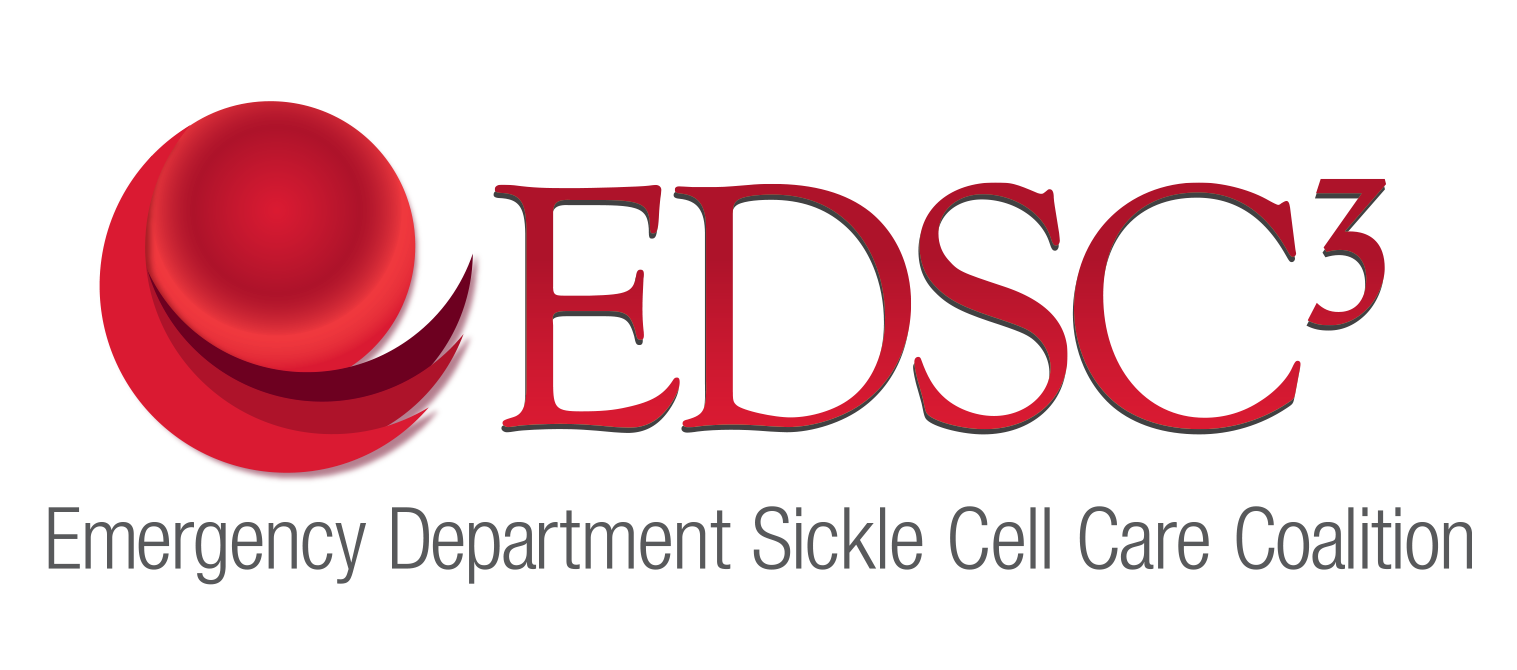ACEP ID:
- My Account
- My CME
- Sign Out
ACEP ID:

ADVOCACY
EDSC3 contributed to a letter addressed to HHS and the CDC raising concerns about the unintended consequences of addressing the opioid crisis for patients with chronic diseases, such as SCD. The letter also expressed appreciation for the CDC’s recent clarification of its Guideline for Prescribing Opioids for Chronic Pain, which conveys that the guideline is not intended to deny clinically-appropriate opioid therapy to any patients who suffer acute or chronic pain from conditions such as cancer and sickle cell disease, but rather to ensure that physicians and patients consider all safe and effective treatment options for pain management with the goal of reducing inappropriate use.
COLLABORATION
EDSC3 hosted a Summit with SDAA on October 13, 2023, in Washington, D.C. that brought together patient advocacy groups, medical societies, and governmental agencies to discuss ways to improve care.
Watch The Emergency Department Narrative (Video)
QUALITY IMPROVEMENT
Sickle cell disease (SCD) is a multisystem, progressive disorder that affects approximately 100,000 Americans, primarily of African and Hispanic descent. While considered a rare disease by the National Institutes of Health, SCD is one of the most common genetic blood disorders in the US. Patients with SCD often require care in emergency departments (EDs), and most commonly seek treatment for pain due to vaso-occlusive episodes. Improving the care of patients with SCD requires a systems approach, focused on both the care provided in the ED as well as post-acute care visits care coordination, and follow-up.
In recognition of the need to improve the care of patients with SCD, ACEP along with Pfizer, offered a grant opportunity focused on supporting quality improvement initiatives designed to improve the assessment and treatment of acute vaso-occlusive crisis pain for adult patients with sickle cell disease treated in Emergency Departments (EDs) in the United States. Six centers in the United States were awarded these grants (see below).
SUMMIT
The Sickle Cell Care Coalition (EDSC3) hosted a one-day summit in collaboration with the Sickle Cell Disease Association of America, Inc. (SCDAA) on Friday, October 13, 2023, in Washington, D.C. The purpose of the summit was to identify how to move from dissemination and education to action and change in the delivery of ED care. Leaders from key organizations met to discuss current initiatives and ways to collaborate to improve emergency department care for children and adults with SCD.
Aisha Terry, MD, MPH, FACEP, President, American College of Emergency Physicians (ACEP) and Associate Professor of Emergency Medicine & Health Policy at George Washington University School of Medicine and Health Sciences provided a keynote address, Health Equity in Emergency Medicine: Caring for our Most Vulnerable. She provided background on equity, equality, and health disparities and provided a historical perspective relative to efforts to ameliorate the effects of bias and structural racism in the medical community. She also discussed the role of workforce diversity and bias in health disparities.



Improving Assessment and Treatment of Acute Vaso-occlusive Crisis Pain in the ED Setting Grantees:
|
Project Title |
Principal Investigator |
Project Location |
|
CRISIS-Collaborative Response In SIckle Cell Systematization |
Corrie Chumpitazi, MD MS |
Baylor College of Medicine in Houston, Texas |
|
System Level Informatics Interventions to Improve ED Care of VOC |
Jeffrey Glassberg, MD MA |
Icahn School of Medicine at Mount Sinai in New York, New York |
|
Sickle Cell Vaso-occlusive Crisis |
Anuj Vohra, DO |
Orange Regional Medical Center in Middleton, New York |
|
Sickle Cell Disease Patient Navigation Program |
R. Gentry Wilkerson, MD |
University of Maryland Baltimore in Baltimore, Maryland |
|
Subcutaneous Opioids at Triage to Treat Acute Vaso-Occlusive Crises |
Caroline Freiermuth, MD |
University of Cincinnati Health in Cincinnati, Ohio |
|
Improving Assessment & Treatment of Vaso-occlusive crisis in the ED |
Shreni Zinzuwadia, MD |
Beth Israel in Newark, New Jersey |